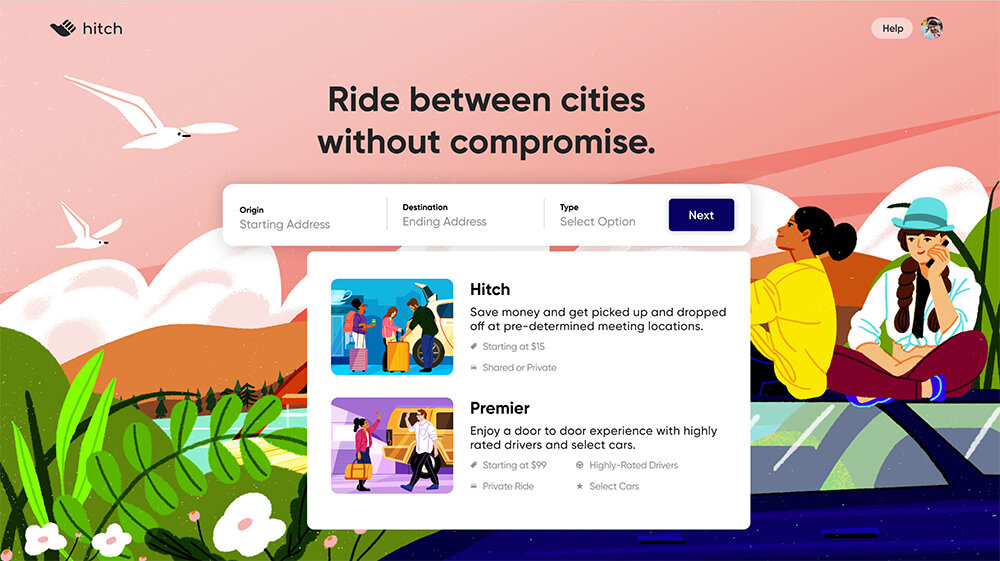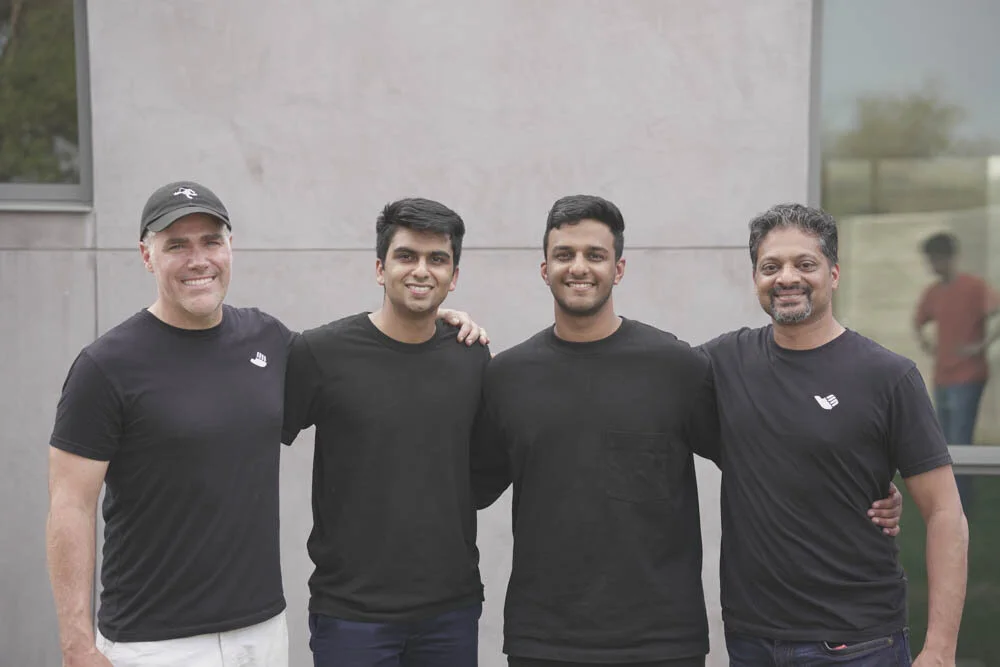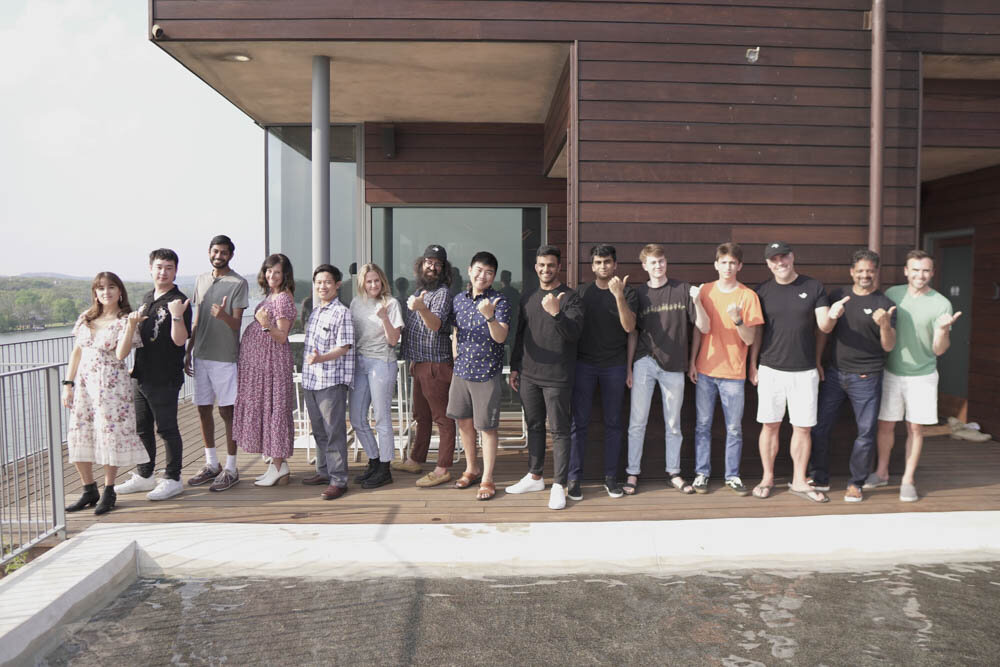Hitch Expands Services to San Antonio
April 28, 2021 - San Antonio/Austin
Hitch, a long-distance rideshare company, plans their expansion of its Texas-wide web of carpool trips and delivery services to San Antonio. Courtesy Images.
By: Ricardo Delgado - Staff Intern, San Antonio Sentinel
Hitch, an Austin-based long-distance rideshare company, plans to expand its Texas-wide web of carpool trips and delivery services to San Antonio.
Kush Singh, the 22-year-old founder and CEO of Hitch, thinks the San Antonio market is the perfect opportunity for the nascent rideshare company to expand its horizons and capitalize on the ever-growing amount of business commuters moving between the Alamo City and Austin.
San Antonio also presents an extension of their existing customer base — students. Commuting students from San Antonio to the University of Texas avoid paying for parking on a clustered campus or riding cramped bus trips through Hitch, reflecting the intent of the company’s founding, Singh said. Apart from the student market they serve, he thinks Hitch fills a niche in rideshare innovation.
“I remember being cash-strapped and car-less, and I lived in Dallas, and the only way that I could go visit my older brother in Austin was with a Greyhound,” Singh said. “That's when this whole idea started. [...] [I]f we step back in the 21st century, there's been a lot of innovation and every mile range of transportation from zero to five miles there's micro-mobility in bird. In one to five miles there's been the traditional rideshare businesses, but [in] the 21st century nothing's come about in the inter-city transportation market, in the 50-to-350-mile market. I think the last big thing was Amtrak in 1971.”
Singh does not view Hitch as a competitor to the top rideshare services, saying they are “completely different use cases” and focused “on the long haul, hour-plus long rides”, even saying he thinks Hitch is “the only standing inter-city carpooling app that actually exists in the United States right now at any sort of scale”. He cites a difference in price point for long-distance trips, saying a trip from Austin to San Antonio would run $25 on Hitch as opposed to “$120 or $150” on Uber. Singh views Hitch’s competition to be the services that inspired him to found the company in the first place.
“We're one of the odd transportation companies that have seen a lot of success throughout the pandemic as people have never really wanted to take the Mega Bus and sit in it and be crowded in a[n] 80 passenger Greyhound,” Singh said. “And that's where we saw a lot of growth, [people] want to ride in private cars and have more space. It's [a] safer way to move between cities. We really see ourselves, competing against: one, people driving themselves, and the economy Greyhound and Mega Bus.”
“Business and student traveling has started up again in a major way (especially between close Texas cities like Austin and San Antonio) but many don’t want to take a bus or a plane or Uber,” a press release from the company said. “[Rideshare] services such as Uber are made for short distances, not puddle-jumping between busy cities, which is [cost-prohibitive] for most people.”
Paradoxically, a business based on sharing an enclosed space with a stranger boomed during COVID-19, as Hitch grew “400%, year over year” during the pandemic, said Singh. A large part of this may be due to the increase in “private” rides with only one passenger on the service. Customers did not stop moving, they just stopped moving together. The overall number of use cases did fall, clarifies Singh, but the number of people seeking alternatives for long-distance transportation forced Hitch’s growth regardless.
“We just grew another 55% month over month from last month,” Singh said. “So I think that we're going to continue to accelerate even faster now that these things are opening up than we were pre-pandemic.”
Hitch’s advertising primarily relies on in-app referrals and word of mouth, but the company found tremendous success with billboards on interstate highways, as well. Once the initial skepticism over the app wears off the recommendations to replace other long-distance travel options come organically, Singh said.
“And that's where we saw a lot of growth, [people] want to ride in private cars and have more space. It's [a] safer way to move between cities. We really see ourselves, competing against: one, people driving themselves, and the economy Greyhound and Mega Bus.” - Kush Singh
“It's a tremendously different experience than sitting in a bus. and once you take it for the first time - that's what people doubt, 'Is this actually going to work" It's $20 to get to San Antonio in a car. Can I actually trust? Will this actually work?', and then once it actually works, and they use the service... I think it's been sort of a mind-blowing experience, 'I've been taking the Greyhound for over 20 years, and now I have this other new service that works way better.'”
Hitch now offers a delivery service, which piggybacks off its ridesharing. Users can send a package to a destination a rider or a driver were already heading to and have it dropped off for a much lower cost than an overnight shipping fare from a regular shipping company. The idea came from Singh’s mother, who wanted to send her son food from Dallas and decided to send the food unaccompanied in a Hitch ride.
“My mom was concerned about me not eating Indian food enough - I've eaten too much pizza and hot dogs as I build this company - so, she wanted a way to send me chicken tikka masala and some of the things that I actually like,” Singh said. “She asked if she could [book a ride], but instead of her going, if she could just send a package for me to go pick up. That was the first shipment. It was a box of chicken tikka masala and some naan and some sweets.”
With regards to drivers, Hitch presents a more flexible alternative in the gig economy than other rideshare apps, thinks Singh. Drivers are able to make more money on jobs that last longer, meaning less idle time spent waiting for a suitable or even profitable request to arrive.
“The biggest value for them over Uber and Lyft has just been the fact that there's no idling around, but you get paid for both ways, essentially, and there's always sort of enough demand that we can service both legs of your trip,” Singh said. “So, with Uber and Lyft traditionally, a driver will be driving around the city, then they'll have to idle and maybe waste time and gas for 15 minutes, for five minutes, while they wait for another ride request and for drivers who are doing this for six, seven, eight hours, all those idle time costs and time waste[d] actually add up the business intercity route.”
The company will likely stay true to the model it entered the market within, intercity travel. Singh views the short-range rideshare market as saturated, viewing improving on its main product and adding more markets to operate in is the key to ongoing success.
“I think that there's a lot of going on in the in-city market,” Singh said. “There's a supply war between the two big companies, [there's] a lot going on there, and it will be distracting for us to get into that market. We want to be really, really good at intercity travel in the 50-to-350-mile range. That's sort of our goal is, to make cities feel closer together through great transportation.”
Singh described the relationship between many gig economy companies, like Hitch, Uber and Lyft, and their workers (the term employees and independent contractors have been the subject of fierce debate between state and federal governments and the rideshare companies) as complex and evolving. He says Hitch is monitoring the way governments will require companies to treat their drivers closely as they look to expand to other markets and other states but is clear the current labor laws do not suit the increasing amount of jobs in the gig economy.
“When we say we're gonna pay you for this much in this leg, we pay exactly that amount,” Singh said. “A lot of cases with Uber and Lyft, you don't even see how much you can make on a per-trip basis, and we think that's incredibly masked and hidden, and so much complexity behind that, why they do that. But we show all these things to the driver. We give the driver the option to actually opt in or opt out of these trips. And I think a lot of the traditional rideshare businesses have really failed in this mode of transparency, and so we made it incredibly important in our driver system that we're super transparent about what the drivers actually have to do: here's the exact route, here's exactly how much you'll make.”
Hitch categorizes all of its drivers as independent contractors, saying many drivers enjoy the flexibility the model provides, as many are not “professional” or full-time drivers on the platform, although those who would fall under that category are growing in number.
Hitch’s only stumbling block is itself, Singh said. Their competitors, at least in Singh’s mind are services widely criticized for their inefficiency and user experience or avoided for their price points, leaving the field wide open for even more expansion in the coming years.
“The opportunity here is enormous, and simply because there's so many drivers that are single-passenger vehicles with empty seats who are driving themselves every single year,” Singh said. “If we can continue to provide a good enough incentive for these drivers to either share their rides with other passengers or to stop driving the cars all together and ride with other people, then I think we'll continue to be successful in sort of any market condition.
“[...]There hasn't really been a company that succeeded in the space, ever, and high-speed rail is TBD forever, and so we're finally doing something about it, Singh said. “We're really excited about what the future holds here for Hitch. I know it's gonna be an exciting time for us, [a] lot of chicken tikka masala to come here to help fuel the growth.”
Ricardo Delgado transferred to Texas State University at San Marcos to study journalism and minor in political science. He expects to graduate in the spring of 2021. Email him at reporter@sasentinel.com





